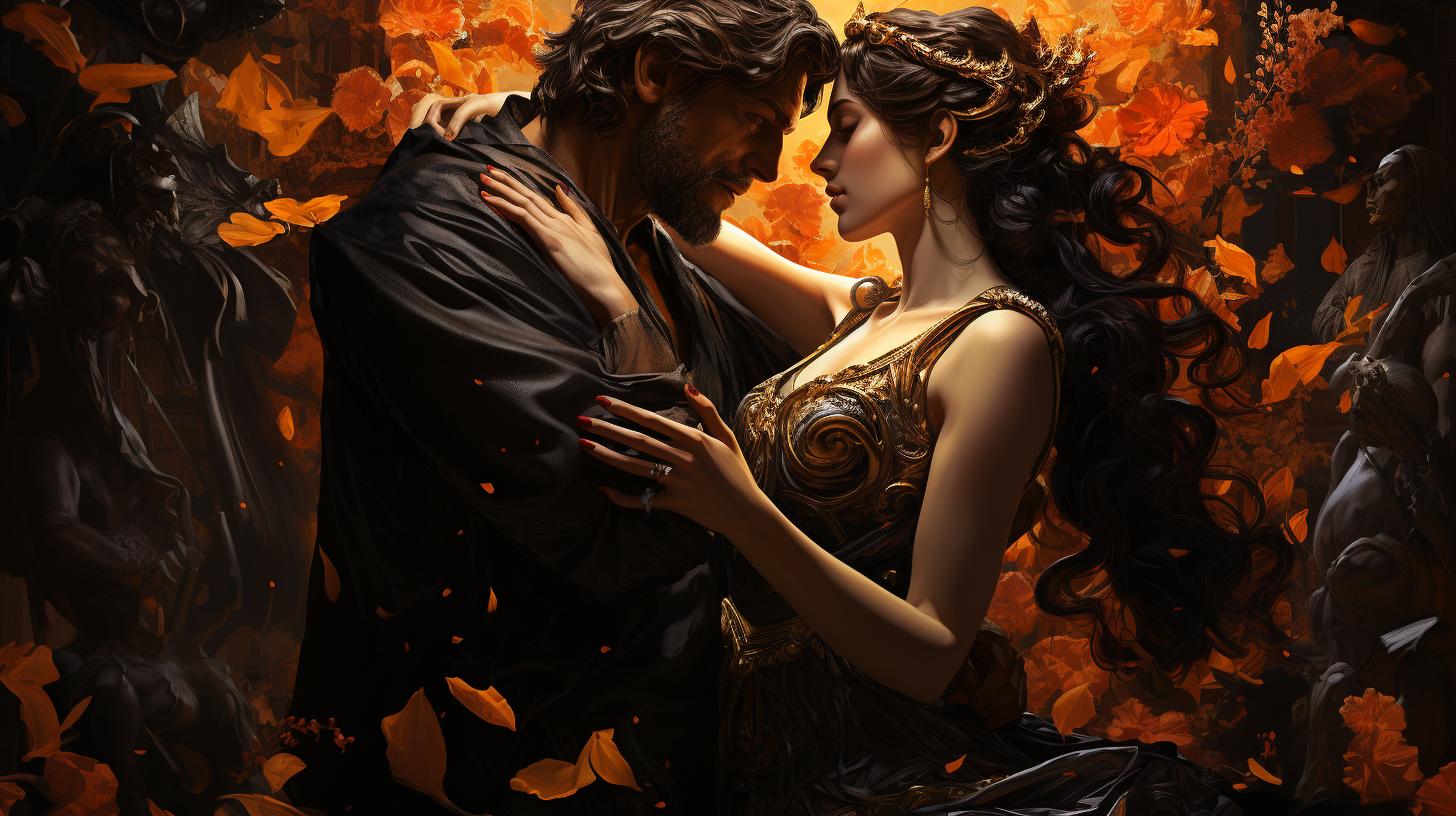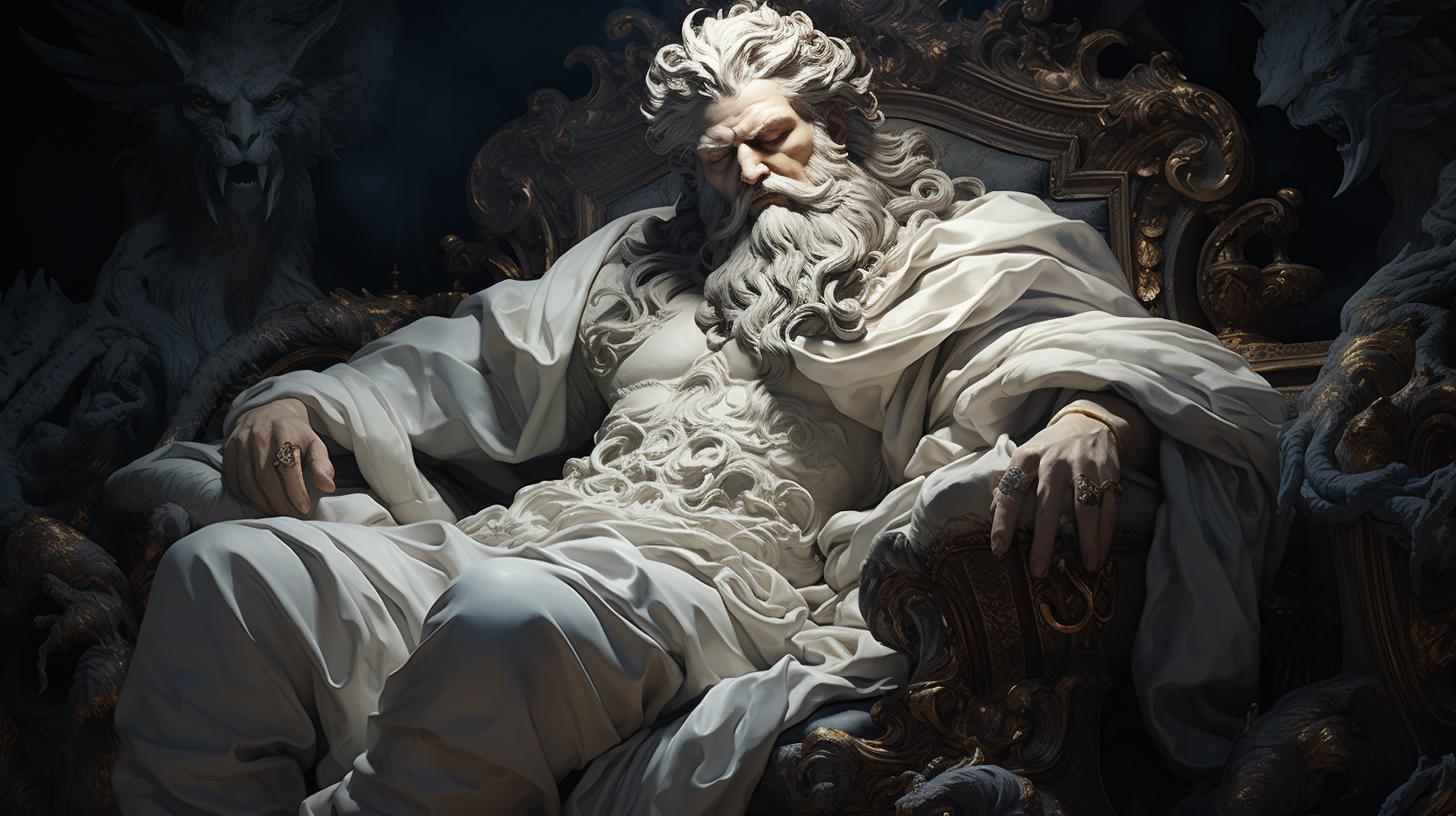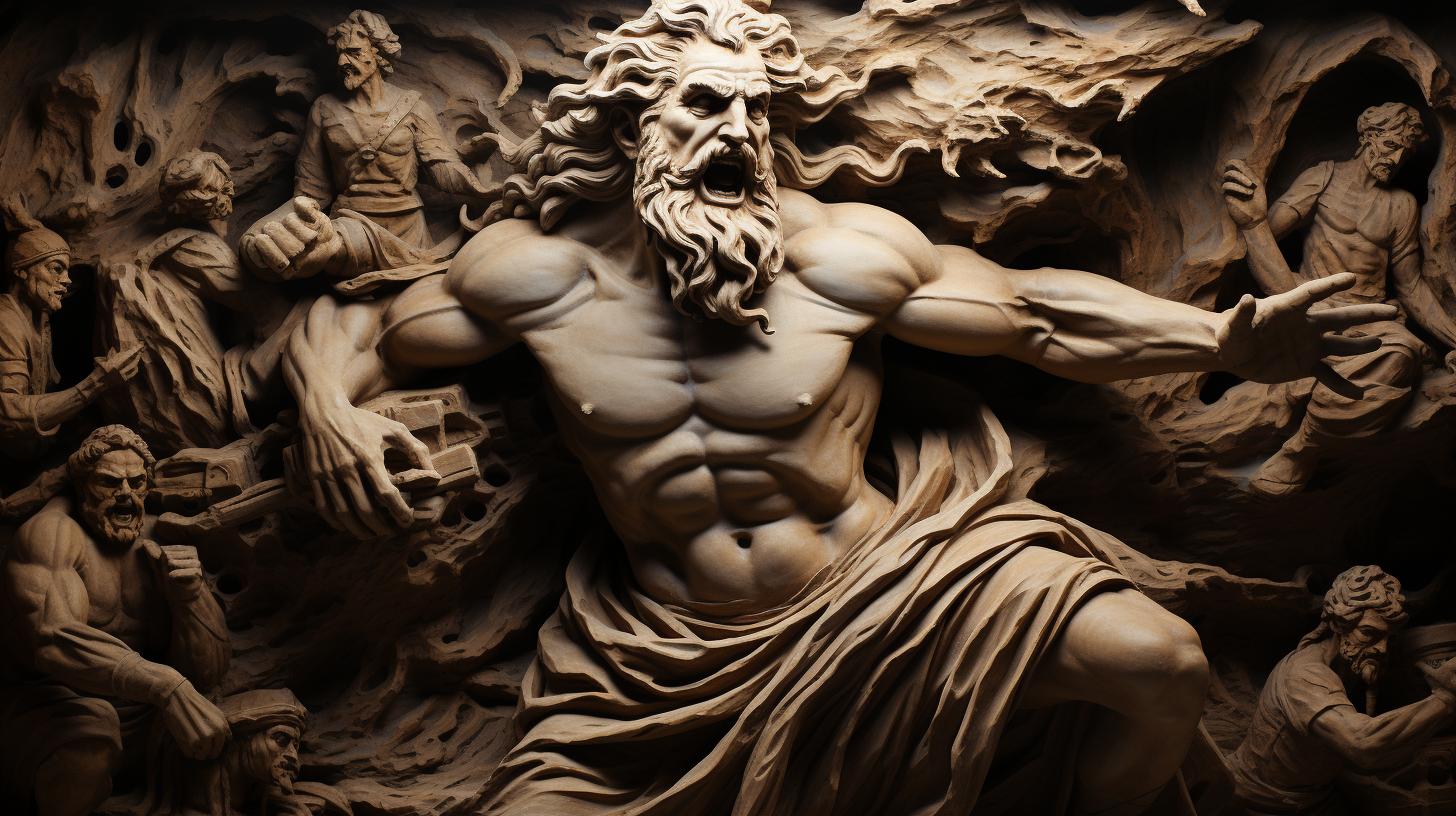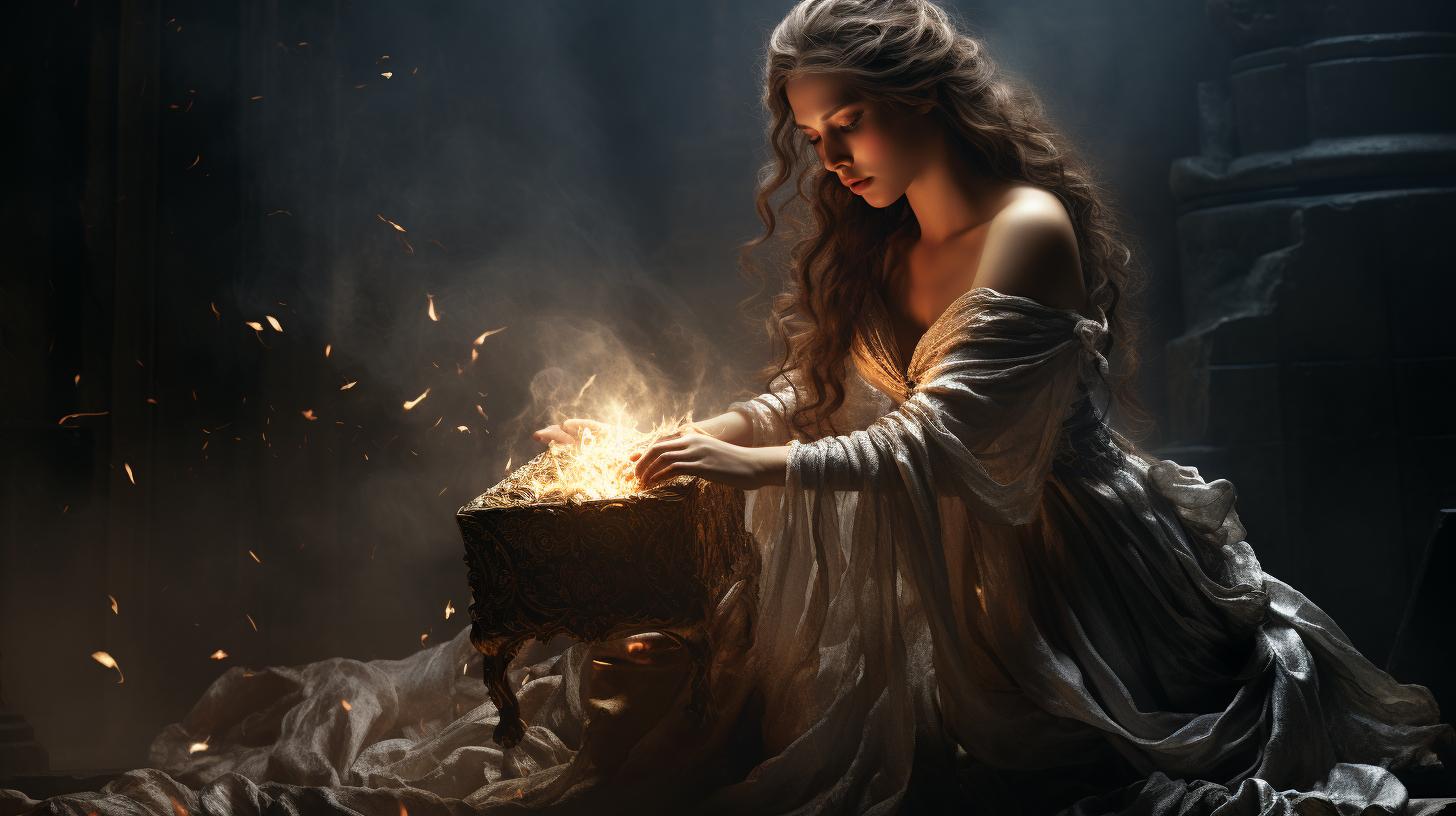Ananke Greek Goddess: The Power and Influence of the Ancient Greek Deity
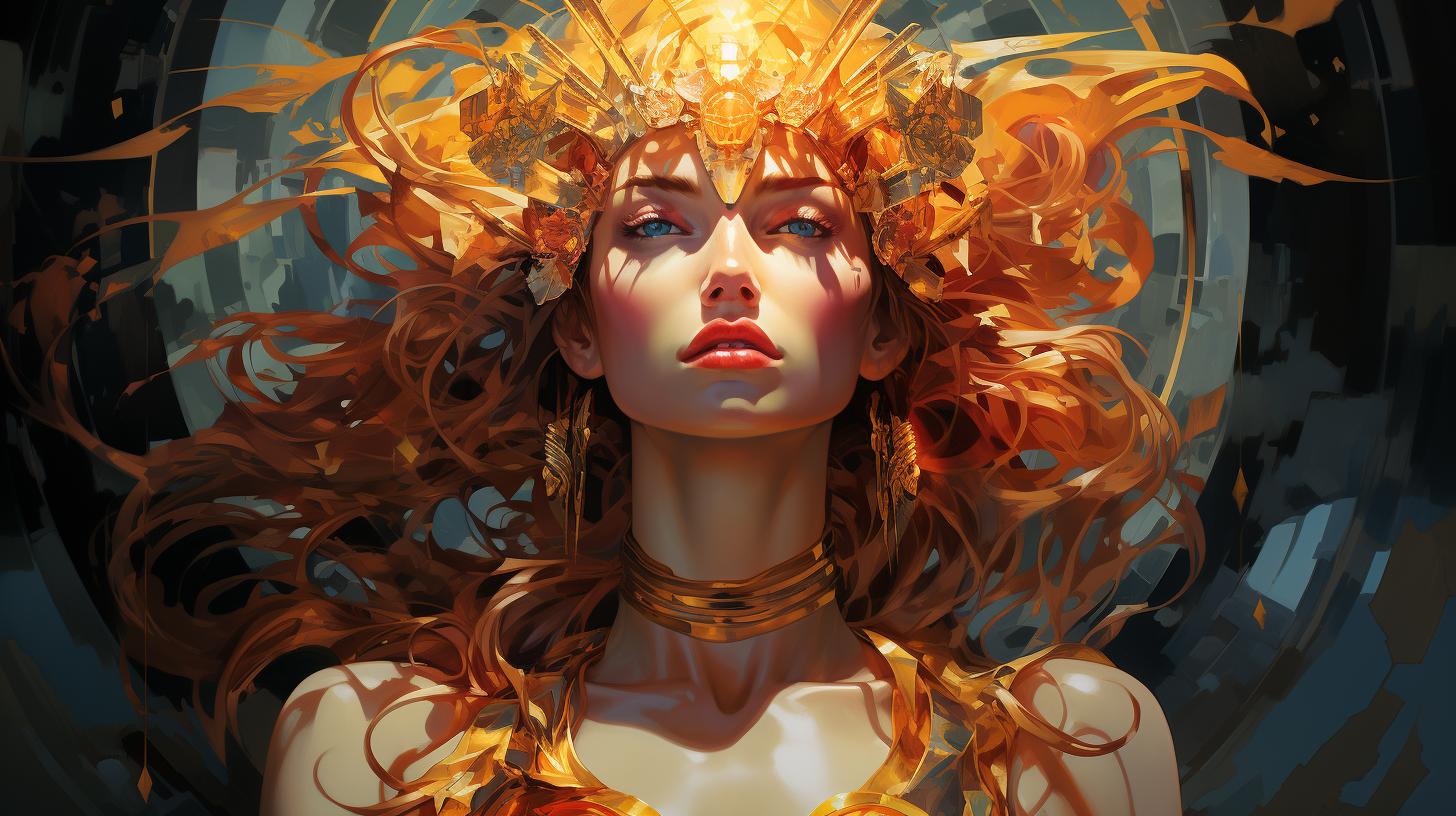
Ananke Greek goddess plays a significant role in Greek mythology and ancient beliefs. She is considered the personification of inevitability, compulsion, and necessity. As a powerful deity, Ananke is associated with the creation of the universe alongside her brother Chronos.
She is believed to have influenced the decisions of the Moirai, or Fates. Ananke’s worship can be found in mystical cults like Orphism, and her influence extends to other Greek gods such as Zeus and Aphrodite. Understanding the legacy and importance of Ananke brings insight into the ancient Greek society and its interpretations.
The Mythological Origins of Ananke
Ananke, the ancient Greek goddess, holds a significant place in mythology as the personification of inevitability, compulsion, and necessity. Her origins are deeply intertwined with her brother Chronos, forming the very fabric of the universe and marking the division between chaos and the birth of cosmos.
Ananke and Chronos: Shaping the Universe
The story of Ananke begins with her birth alongside her brother and consorte, Chronos. Together, they played a pivotal role in the creation of the cosmos, their intertwined forms becoming a symbol of their inseparable connection.
As the powerful deities of inevitability and time, they dictated the natural order and the unfolding of events that shaped both divine and mortal realms.
Ananke’s Association with Greek Deities
Beyond her partnership with Chronos, Ananke’s influence extends to other Greek deities. One notable association is with Aphrodite, specifically Aphrodite Urania, who represents celestial and abstract love. Ananke and Aphrodite are both considered powers that govern the course of life, with Ananke embodying the necessity and purpose behind existence and Aphrodite representing the transformative power of love.
In various ancient myths and stories, Ananke’s presence and influence are felt, weaving through the complex tapestry of Greek mythology. From the birth of the cosmos to the destiny of gods and mortals alike, Ananke’s role as the all-powerful force remains an inherent part of Greek mythological narratives.
The Symbolism and Representation of Ananke
Ananke, the Greek goddess, holds profound symbolism as the personification of necessity, dictating the essential forces of existence. In Greek mythology, she represents the unavoidable and binding elements that govern human life.
Ananke’s role extends beyond mere symbolism, as she wields significant influence in shaping fate and destiny.
Ananke as the Personification of Necessity
Ananke embodies the concept of necessity in Greek mythology, representing the essential elements that are indispensable and inescapable. As the embodiment of this force, Ananke ensures that events and circumstances unfold according to the predetermined course of the universe.
The presence of Ananke serves as a reminder of the natural laws and order that govern life’s progression, emphasizing the importance of acknowledging and embracing the inevitable.
Ananke’s Role in Influencing Fate and Destiny
Beyond symbolizing necessity, Ananke exercises a remarkable influence in determining the course of fate and destiny. She is intricately linked to the Moirai, the Fates who control the lives of mortals.
Ananke’s unique ability to shape and influence the decisions of the Moirai highlights her exceptional power, making her presence felt in every aspect of human existence. Ananke’s role as a powerful enforcer of destiny underscores the belief in a predetermined path that every individual must follow.
Ananke’s Relationship with the Moirai (Fates)
Ananke played a significant role in the realm of destiny and fate as the mother of the Moirai, also known as the Fates. Let’s explore her connection with these powerful entities and their influence on the course of life.
Ananke as the Mother of the Moirai
Ananke is revered as the divine mother who brought forth the Moirai, which consisted of three sisters: Clotho, Lachesis, and Atropos. Each sister symbolized a distinct aspect of destiny. Clotho spun the thread of life, Lachesis measured its length, and Atropos cut it, determining its end.
The Influence and Power of the Moirai
The Moirai possessed great influence over the lives of mortals and gods alike. Their decisions were often considered final and unalterable. They not only determined the lifespan of individuals but also orchestrated important events and outcomes in the world.
Their power extended from making cosmic arrangements to controlling the destiny of each individual.
- The Moirai wove the threads of life, shaping the destiny of mortals and gods.
- They were considered the ultimate arbiters of fate.
- Their influence extended to various aspects of life, including love, relationships, and the outcomes of wars.
- Even the most powerful gods had to respect and abide by the decisions of the Moirai.
In ancient Greek culture, the Moirai were both feared and revered, as their actions were believed to be guided by the will of Ananke, the goddess of inevitability.
Understanding the connection between Ananke and the Moirai sheds light on the intricate nature of Greek mythology and its belief in the predetermined paths of life.
Ananke in Ancient Greek Religion and Philosophy
Ananke’s influence in ancient Greek religion and philosophy was profound, leaving a lasting impact on various aspects of spiritual and intellectual thought.
Within the realm of ancient Greek mysticism, Ananke was particularly venerated in the cult of Orphism and other mystical traditions.
Ananke’s Worship in Orphism and Mystical Cults
In the mystical cult of Orphism, Ananke held a significant place of reverence. Adherents believed in the divinity of Ananke, associating her with Bia, the embodiment of strength and power.
Orphic rituals often involved secret ceremonies and initiations, focusing on the worship of Ananke and the exploration of the cosmic order she represented. Her worship emphasized the concept of inevitability and the necessity of following a predetermined path in life.
Ananke’s Significance in Plato’s Philosophy
Ananke’s philosophical significance can be seen in the works of Plato, one of the most influential philosophers in ancient Greece. Plato incorporated Ananke’s concepts into his philosophical framework, particularly in his discussion of the Forms and the nature of reality.
Ananke’s notion of inevitability aligns with Plato’s belief in the immutable nature of the Forms, which represent the ultimate truth and ideal existence. Plato recognized Ananke’s role in shaping the universe and acknowledged the necessity of her influence in the realm of philosophy.
Ananke’s Connection to Other Greek Deities
Ananke, the Greek goddess of inevitability and necessity, shares significant connections with other prominent Greek deities. These connections shed light on her influence and role within the pantheon of gods.
Ananke’s Relationship with Zeus and Other Gods
Ananke’s relationship with Zeus, the king of the gods, is one of complexity and significance.
As the goddess of necessity, Ananke’s influence extends to all realms, including divine ones. She presides over the laws of nature and the cosmic order that even Zeus himself must adhere to.
In Greek mythology, Ananke acts as the overseer of Zeus’s actions, ensuring that his decisions align with the predetermined course of fate. While Zeus holds immense power, Ananke stands as a constant reminder of the inevitability of destiny, urging him to act within its bounds.
Beyond Zeus, Ananke’s connections with other gods are similarly noteworthy. She intertwines with deities like Poseidon, Hades, and Hera, establishing her role as a higher power influencing their actions and enforcing divine necessity.
Ananke’s presence ensures that even the gods must submit to the laws she represents.
Ananke’s Association with Aphrodite and Eros
Ananke’s association with Aphrodite, the goddess of love, adds another layer of significance to her divine role. Specifically, Ananke connects with the celestial and abstract aspect of Aphrodite known as Aphrodite Urania.
As a force of celestial love, Aphrodite Urania aligns with Ananke’s role as the goddess of inevitability and compulsion.
Together, they dictate the course of life and shape the destiny of mortals and gods alike. Ananke’s presence ensures that even the powerful emotions of love and desire follow the predetermined paths set by fate.
Ananke also shares a connection with Eros, the god of love and desire. As Eros embodies the intense and uncontrollable passions associated with love, Ananke directs and channels these primal forces according to the divine plan.
Together, Ananke, Aphrodite, and Eros shape the intricacies of human relationships and experiences.
- Ananke’s relationship with Zeus highlights her role in enforcing the laws of nature and destiny even upon the king of the gods.
- She extends her influence to other gods like Poseidon, Hades, and Hera, compelling them to operate within the boundaries of inevitability.
- Ananke’s association with Aphrodite Urania emphasizes her role in guiding and controlling the celestial, abstract aspects of love.
- Through her association with Eros, Ananke shapes the uncontrollable forces of desire to align with the predetermined paths of fate.
Ananke’s Role in Greek Mythology and Stories
Ananke, the Greek goddess of inevitability and necessity, played a significant role in various myths and stories within Greek mythology.
Her involvement in different narratives showcased her power and influence over the course of events.
Ananke’s Involvement in Prometheus Bound
In the tragic play Prometheus Bound attributed to Aeschylus, Ananke plays a key role in the punishment of Prometheus, the Titan who stole fire from the gods to benefit humanity.
She represents the inescapable fate that binds Prometheus to his rock, as decreed by Zeus. Ananke’s presence emphasizes the concept of divine law and the consequences of defying the gods.
Ananke’s Influence on the Hesiodic Cosmogony
In the Hesiodic cosmogony, Ananke’s influence is evident in the creation myth. Alongside her brother Chronos, she marks the division between chaos and the beginning of the cosmos. Their intertwined serpent forms symbolize the essential forces driving the universe’s formation and functioning.
Ananke represents the necessity and inevitability of the natural order, underscoring the idea that even the gods are subject to her ultimate power.
- The involvement of Ananke in Prometheus Bound highlights her role as the enforcer of fate and the consequences of challenging divine authority.
- Within the Hesiodic cosmogony, Ananke’s intertwined form with Chronos emphasizes their pivotal role in creating the universe and establishing natural laws.
Ananke’s presence in these stories reinforces the idea that destiny and the workings of the universe are bound by her powerful influence.
Her connection to the ancient Greek concepts of inevitability and necessity deepens our understanding of the underlying beliefs and values of the culture in which she was revered.
The Legacy and Importance of Ananke in History
Ananke, the powerful Greek goddess, has left an indelible mark on ancient Greek society and continues to be relevant in modern interpretations.
Her impact spans across various aspects, from shaping the religious and philosophical beliefs of the time to influencing cultural practices and societal structures.
Ananke’s Impact on Ancient Greek Society
Ananke’s influence on ancient Greek society was profound. As the personification of inevitability and necessity, she played a crucial role in shaping the Greeks’ understanding of fate and the natural order of the world.
Her presence was felt in various domains, including:
- Religious Practices: Ananke’s worship, particularly in mystical cults like Orphism, provided spiritual guidance and an understanding of the fundamental forces that governed human existence.
- Social and Cultural Structures: Ananke’s concepts of fate and necessity influenced the Greeks’ approach to societal norms, family structures, and the acceptance of one’s predetermined path.
- Natural Laws: Ananke’s association with Chronos symbolizes the inescapable passage of time and the laws of nature.
The Greeks acknowledged her role in the cyclical nature of seasons and the predictability of celestial events.
Ananke’s Relevance in Modern Interpretations
The importance of Ananke extends beyond ancient Greece, resonating with modern audiences and interpretations of mythology. In contemporary contexts, Ananke’s significance can be seen in:
- Literature and Arts: Ananke’s themes of destiny, compulsion, and inevitability continue to inspire authors, poets, and artists who explore universal human experiences and the concept of free will.
- Philosophical Discourse: Ananke’s philosophical implications in the realms of determinism, existentialism, and the nature of human agency have sparked intellectual debates and discussions, transcending cultural and temporal boundaries.
- Psyche and Self-Reflection: Ananke’s symbolic representation as the force that governs human destiny prompts individuals to reflect on their own lives and choices, questioning the extent to which they can control their own paths.
In essence, Ananke’s legacy lies in her ability to transcend time and resonate with diverse interpretations, showcasing her undeniable relevance and impact in ancient Greek society and beyond.
.
















